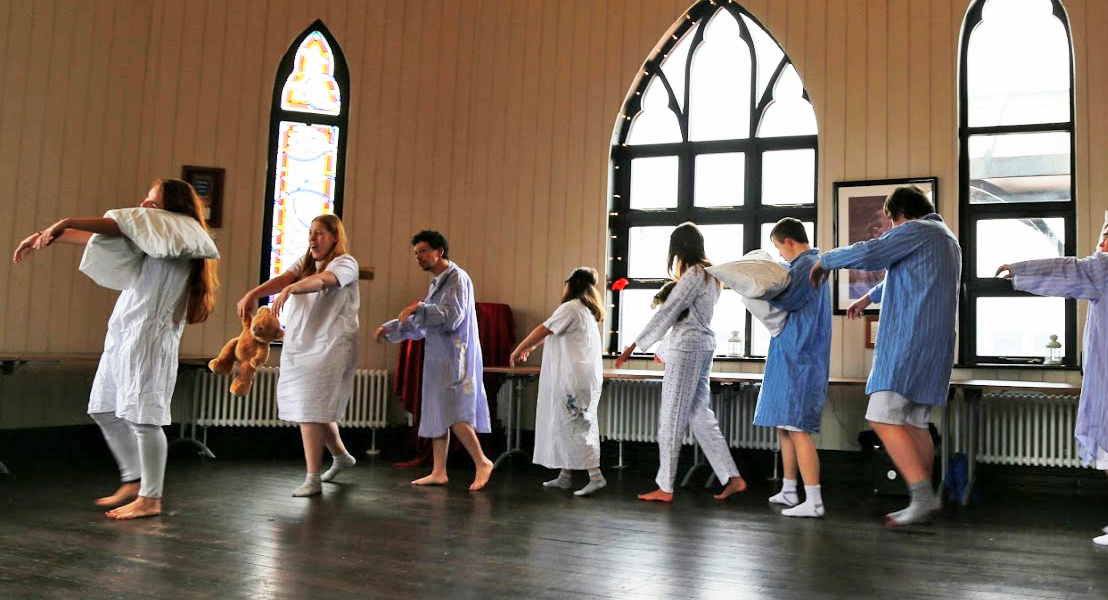Published 09/04/2018
| Last Updated 16/12/2024
Guest blog by Bethan Sayed AM, Chair of the Assembly’s Culture, Welsh Language and Communications Committee

In the past ten years, Welsh Government and National Lottery funding for the Arts Council of Wales
has fallen by almost 10% in real terms, while the Government has called on the sector to reduce its dependence on public expenditure.
As Chair of the Assembly’s Culture, Welsh Language and Communications Committee and as a Committee, I felt the time was right to hold an inquiry into
non-public funding of the arts to determine how feasible the Government’s call is, and to identify practical steps to enable the sector to respond effectively to it.
Art needs funding to support its future, but what can be done to secure it?
The importance of art to a healthy society
The importance of art to society is undeniable.
Art illuminates and enriches our lives, which makes it indispensable to a healthy society. The wide-ranging benefits of art to both society on the whole, and the individual, are now widely recognised. From its economic impact to the benefits it brings to education – the potential for art to enable positive outcomes within society should be recognised, promoted and utilised fully by policy makers.
Recognising the challenges faced by the arts in Wales
What became evident very quickly during the inquiry was that
arts organisations in Wales face unique, diverse and very difficult challenges when attempting to raise non-public funding. For example, the small size of many of Wales’s arts organisations, and their distance from large centres of population, make raising non-public revenue difficult.
In particular, the dominance of London and the south east of England, in terms of the proportion of non-public funding awarded within the UK, is startling.
A 2013 study found that contributions made by individuals and businesses to the arts in London
accounted for 85% of the overall funding awarded throughout England. Although Wales was not covered by the study, it’s not thought to be out of sync with the regions of England outside of London.
Until such a disproportionate reality is recognised and addressed it’s impossible to see how the situation in Wales can be adequately improved.
This situation is also compounded by the fact that scale and location are key factors in enabling generation of commercial revenue, making it more difficult for organisations to raise revenue outside of large centres of population.
These distinctly Welsh difficulties illustrate the need for the Welsh Government to back up what they have asked the sector to do with a sufficient level of effective support.

What has the Committee concluded?
We have called on the Government to take action to raise the profile of the arts as a charitable cause and to raise awareness among UK-based trusts and foundations of the excellent arts projects and organisations in Wales.
[gallery ids="4859,4858,4856"]
As it stands, the sector does not have the resources necessary to respond effectively to the Government’s call. A shortage of appropriate skills within the sector was a common theme presented throughout the evidence. This is why we have called on the Welsh Government to establish a source of fundraising expertise for small arts organisations, in an analogous fashion to the support it currently provides for small businesses through its Business Wales service.
As might be expected, we found that larger organisations are more likely to be effective when applying for grants as they have easier access to appropriate skills (for example, to write effective applications). When such a small proportion of the funding available within the UK is awarded outside of London and the south east it’s understandable that competition for the remaining funding is fierce.
In such a climate it’s then little surprise that smaller organisations struggle to compete.
This serves to underline the need for a tailored form of support, one which recognises the differing needs and capabilities of arts organisations throughout Wales.
This is not to say that those within the sector shouldn’t explore every opportunity to increase their non-public income. We also received evidence suggesting that Welsh arts organisations could be more proactive in their approach to applying for funding.
We were excited to hear about the impact of the Welsh Government’s trade mission to China, which included a cultural delegation organised by Wales Arts International. Hijinx, a theatre company that works with learning disabled actors, told us that this trip had opened doors to future international tours and collaboration. This is why we have called for the Welsh Government to commission research on international markets with growth potential for Welsh artists, and, where possible, to include a cultural component on trade missions, alongside a strategy to grow international markets.
What is clear is that if the Welsh Government expect their call for the arts sector to reduce its dependence on public funding to have a tangible impact within the sector – they need to back it up with an appropriate level of tailored and informed support.
You can read the full report and the Committee’s recommendations
here.
Follow the Culture, Welsh Language and Communications Committee on Twitter
@SeneddCWLC
 In the past ten years, Welsh Government and National Lottery funding for the Arts Council of Wales has fallen by almost 10% in real terms, while the Government has called on the sector to reduce its dependence on public expenditure.
As Chair of the Assembly’s Culture, Welsh Language and Communications Committee and as a Committee, I felt the time was right to hold an inquiry into non-public funding of the arts to determine how feasible the Government’s call is, and to identify practical steps to enable the sector to respond effectively to it.
Art needs funding to support its future, but what can be done to secure it?
In the past ten years, Welsh Government and National Lottery funding for the Arts Council of Wales has fallen by almost 10% in real terms, while the Government has called on the sector to reduce its dependence on public expenditure.
As Chair of the Assembly’s Culture, Welsh Language and Communications Committee and as a Committee, I felt the time was right to hold an inquiry into non-public funding of the arts to determine how feasible the Government’s call is, and to identify practical steps to enable the sector to respond effectively to it.
Art needs funding to support its future, but what can be done to secure it?



